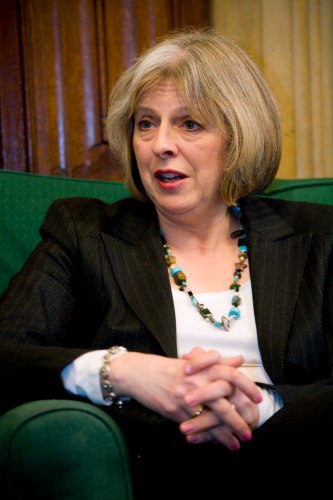
Home Secretary Theresa May is reportedly considering a minor change to the Tier 2 (Intra Company Transfer) (Short Term) visa rules aimed at reducing the perceived number of immigrants in the UK by as many as 20,000. The move, however, turns out to be little more than a ruse that will have absolutely no effect on the real number of immigrants in the country.
By changing the maximum stay on the short term ICT visa from 12 months to a shorter term, even 11 months or 364 days, Mrs May would remove 19 – 20,000 people from the immigration figures at a stroke, since they will then no longer be classed as ‘resident’ in the UK and therefore be excluded from immigration figures. According to the Financial Times, civil servants at the Home Office have proposed the change in order to reduce the bottom line immigration figure.
The FT also reports that business opposes the change. It reports that Neil Carberry of the employers’ body the Confederation of British Industry (CBI) said: “We are in a pretty dangerous place if we are redesigning the tiers of the immigration system in order to meet a political target (…) This would undermine the image of the UK as a place where we welcome highly skilled people”.
David Cameron made what many now see as a rash pre-election promise to reduce net annual immigration to below 100,000 by 2015. Net annual immigration is calculated by taking the number of people who arrive in the country intending to reside permanently over a given year and subtracting the number of UK residents who leave on a long term basis over the same period.
According to the UN definition, to be classed as a resident on arrival in the UK, a migrant must be intending to stay for a year or more. Therefore, students who arrive for a three year university course are classed as residents. As most students are in the UK on a temporary basis, many universities and colleges have argued that it is misleading to include students in the immigration figures as permanent immigrants coming to the UK. Those arriving in the UK on shorter term student visas under a year, however, are not classed as residents and are not included in the migration statistics. By altering the maximum stay for short-term Tier 2 (ICT) visa holders even to one day under a year, Mrs May would remove all of them from the immigration statistics. About 20,000 short term ICT visas are issued each year.
Under the previous Labour government, there was a significant increase in net immigration. Much of this rise was caused by the accession of eight new countries to the European Union in 2004. Unlike many EU countries, the UK did not place any controls on citizens of the new countries coming to live and work in the UK. The Labour government said that they expected 13,000 people to come to the UK to work from the new EU member states each year. In fact, it is estimated that over 600,000 came in the first year.
Under Labour there were also many immigrants from outside the European Union. By 2010, net immigration was about 250,000 per year. Mr Cameron said in a BBC programme before the last General Election that he would reduce immigration to ‘tens of thousands’ annually. This was taken to mean below 100,000 a year. By 2012, the government had succeeded in reducing the net immigration figure by about 100,000 to an estimated 153,000 annually. However, it has since found reductions harder to come by. The latest figures showed that, in the year to September 2013, the net immigration figure is back above 200,000. Experts predict that the figure may well climb back up to 2010 levels making Mr Cameron ‘a failure’ on immigration.
Mr Cameron is also facing the possibility of electoral defeat in the European elections this May. Conservative Party strategists fear that a rise in the net immigration figure could drive some Conservative supporters to vote for the anti-EU UK Independence Party (UKIP) in coming elections. UKIP is promising to cut immigration by taking the UK out of the EU, which would enable the UK to set its own immigration policy and to cut immigration. A rise in the net immigration figure might encourage more voters who would normally vote Conservative to vote for UKIP instead.










